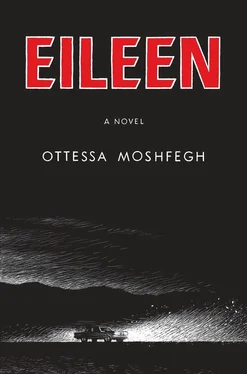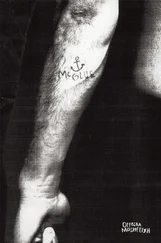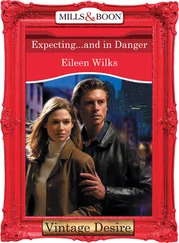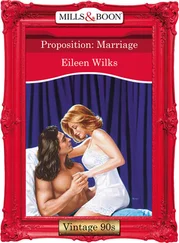I’ll never forget that bright jangle of the bell over the liquor store door since it rang for me nearly every evening. Lardner’s Liquors. I loved it there. It was warm and orderly, and I wandered the aisles for as long as I could, pretending to browse. I knew, of course, where the gin was kept: center aisle on the right if you’re facing the cashier, a few feet from the back wall, and just two shelves of it, Beefeater on top and Seagram’s below it. Mr. Lewis, who worked there, was so gentle and happy, as though it had never occurred to him just what all that liquor was for. That night, I got the gin, paid, and went back to the car, laid the bottles on the passenger’s seat. How odd it is that liquor never freezes. It was the one thing in that place that simply refused the cold. I shivered in the Dodge, turned the key, and drove slowly home. I took the long and scenic route as the darkness fell, I remember.
My father was in his chair in the kitchen when I got back to the house. Nothing special happened that night. It’s just a place to begin. I set the bottles down within his reach on the floor and crumpled the paper bag in my fist, threw it at the pile of trash by the back door. I walked up to the attic. I read my magazine. I went to bed.
So here we are. My name was Eileen Dunlop. Now you know me. I was twenty-four years old and had a job that paid fifty-seven dollars a week as a kind of secretary at a private juvenile correctional facility for teenage boys. I think of it now as what it really was for all intents and purposes — a prison for children. I will call it Moorehead. Delvin Moorehead was a terrible landlord I had years later, and so to use his name for such a place feels appropriate.
In a week, I would run away from home and never go back. This is the story of how I disappeared.
F riday meant a noxious aroma of fish was wafting up from the basement cafeteria and through the cold quarters where the boys slept, down the linoleum halls and into the windowless office where I spent my days. It was a smell so pungent and punishing I could detect it even outside in the parking lot when I arrived at Moorehead that morning. I had built up the habit of locking my purse in the trunk of my car before I went in to work. There were lockers in the break room behind the office, but I didn’t trust the staff. My father had warned me when I’d started there at age twenty-one, naive beyond reproach, that the most dangerous individuals in a prison are not the criminals but the very people who work there. I can confirm this to be true. Those were perhaps the wisest words my father ever told me.
I’d packed a lunch consisting of two squares of Wonderbread, buttered and packaged in tinfoil, and a can of tuna fish. It was Friday and I didn’t want to go to hell, after all. I did my best to smile and nod at my coworkers, both awful middle-aged women with stiff hairdos who barely looked up from their romance novels unless the warden was around. Their desks were littered with yellow cellophane wrappers from caramel candies which they each kept in fake crystal bowls on the corners of their desks. As awful as they were, the office ladies ranked low on the list of despicable characters in my life over the years. Working day shifts in the office with them, I really didn’t have it so bad. Having a desk job meant I rarely had to interact with one of the four or five terrifying and pig-nosed correctional officers whose job it was to mend the wicked ways of Moorehead’s young residents. They were like army sergeants, rapping boys with batons on the backs of their legs as they shuffled around, restraining them in schoolyard-style choke holds. I tried to look the other way when things got hairy. Mostly I looked up at the clock.
The overnight guards would get off shift at eight, when I arrived, and I never knew them, though I remember their exhausted faces — one was a loping idiot and the other a balding veteran with tobacco-stained fingers. They’re not important. But one daytime guard was just wonderful looking. He had big hound-dog eyes, a strong profile still softened with youth and what I thought, of course, was some sort of magical sadness about him, and hair that gleamed in a high ducktail — Randy. I liked to watch him from my desk. He sat in the hallway that connected the office to the rest of the facility. He wore the standard starched gray uniform, well-oiled motorcycle boots, a heavy set of keys clipped to his belt loop. He had a way of sitting with one flank on the stool, one off, a foot hanging midair, a posture which presented his crotch as though on a platter for me to gaze at. I was not his type, and I knew so, and that pained me though I never would have admitted it. His type was pretty, long-legged, pouty, probably blond, I suspected. Still, I could dream. I spent many hours watching his biceps flick and pump as he turned each page of his comic book. When I imagine him now, I think of the way he’d swerve a toothpick around in his mouth. It was beautiful. It was poetry. I asked him once, nervous and ridiculous, whether he felt cold wearing just short sleeves in winter. He shrugged. Still waters ran deep, I thought, nearly swooning. It was pointless to fantasize, but I couldn’t help imagine one day he’d throw stones at my attic window, motorcycle steaming out in front of the house, melting the whole town to hell. I was not immune to that sort of thing.
Though I didn’t drink coffee — it made me dizzy — I walked to the corner where the coffee pot was because there was a mirror on the wall above it. Looking at my reflection really did soothe me, though I hated my face with a passion. Such is the life of the self-obsessed. The time I languished in the agony of not being beautiful was more than I care to admit even now. I rubbed a crumb of sleep from my eye and poured myself a cup of cream, sweetened it with sugar and Carnation malted milk, which I kept in my desk drawer. Nobody commented on this strange cocktail. Nobody paid any attention to me at all in that office. The office women were all so soured and flat and cliquish. I suspected at the time they were secretly homosexual for each other. Such persuasions were more and more on one’s mind back then, townsfolk ever watchful for the errant “latent homosexual” on the prowl. My suspicions about the office ladies weren’t necessarily disparaging. It helped me to have a little compassion when I imagined them going home at night to their disgusting husbands, so bitter, so lonely. On the other hand, to think of them with their blouses unbuttoned, hands in each other’s brassieres, legs spread, made me want to vomit.
There was a small section in a book I’d found in the public library that showed casts of faces taken of figures such as Lincoln, Beethoven, and Sir Isaac Newton after they’d died. If you’ve ever seen a real dead body you know that people never die with such complacent grins, such blankness. But I used their plaster casts as a guide and practiced very diligently in the mirror, relaxing my face while keeping an aura of benign resilience, such as I saw in those dead men’s faces. I mention it because it is the face I wore at work, my death mask. Being as young as I was, I was terribly sensitive, and determined never to show it. I steeled myself from the reality of the place, this Moorehead. I had to. Misery and shame surrounded me, but not once did I run to the bathroom crying. Later that morning, delivering mail to the warden’s office, which was within the complex of chambers where the boys studied and had recreational activities, I passed a corrections officer — Mulvaney or Mulroony or Mahoney, they all seemed the same — twisting a boy’s ear as he knelt down in front of him. “You think you’re special?” he asked. “See the dirt on the floor? You matter less than a speck of that dirt between those tiles.” He pushed the boy’s head down face first into his boots, big and steel-toed, hard enough to club someone to death. “Lick it,” said the officer. I watched the boy’s lips part, then I looked away.
Читать дальше












